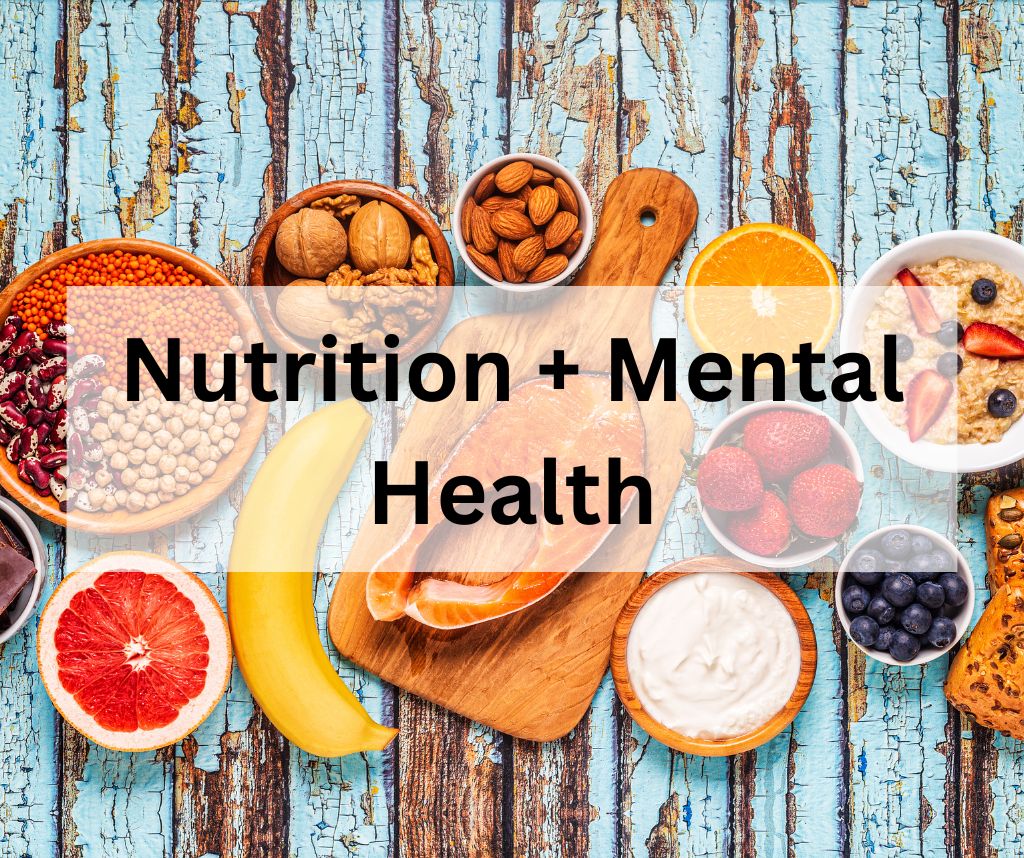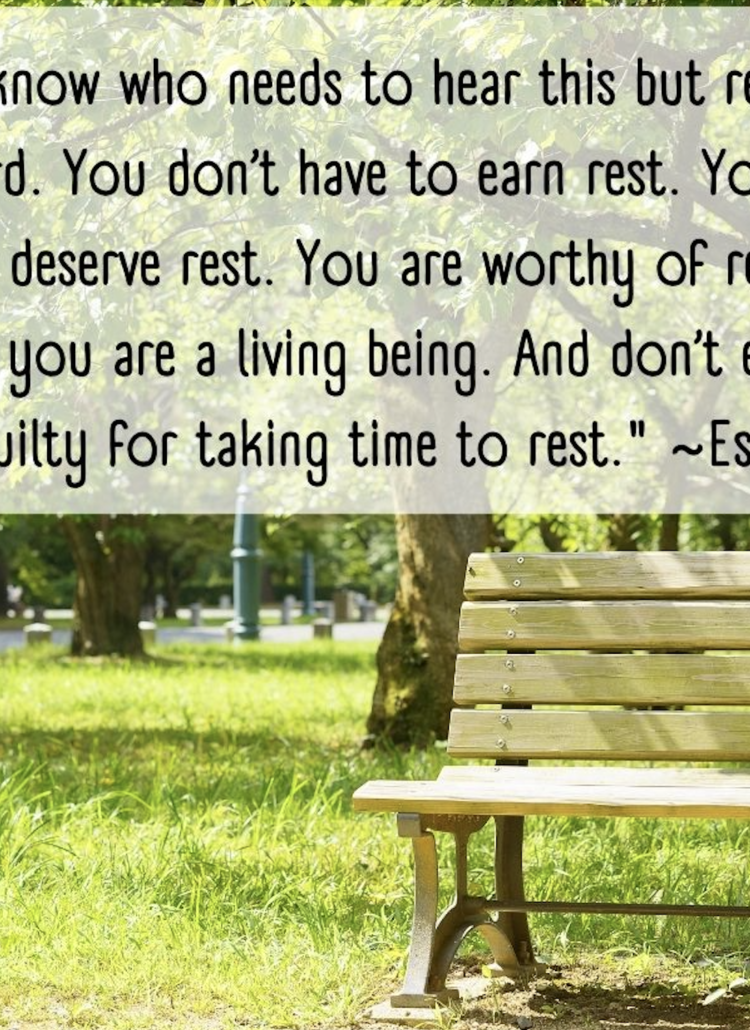Have you ever thought about how—or even if—what you eat affects how you feel? While we most often think about how nutrition affects our physical bodies and what we’re able to do day in and day out, it can also make a huge impact both negatively and positively on our mental health depending on what we eat. Studies are proving the validity of this nutrition + mental health link:
- A diet high in fruit, vegetables, whole grains, and healthy fats resulted in a lower risk of depression. 1
- A diet high in added sugars and saturated fats resulted in increased anxiety. 2 While this study was among those aged 50+, it makes sense that it could apply to anyone of any age.
- A diet high in fruits and vegetables equated to decreased levels of tension and worry, a higher quality of life, and a greater sense of well-being. 3,4,5
Here’s another thing to think about: The brain never goes to sleep, it never takes a vacation, and it’s always working. It manages all we do, including our emotions (happiness, sadness, anxiety, stress, depression, and so on), which originate in the brain. While the brain only accounts for 2% of our body mass, it uses up 20% of the calories we consume every day! So if we go on a calorie-restrictive diet, our brain and all its functions—including our mental health—can suffer along with all the other systems in our body.
7 Tips for Optimizing the Nutrition and Mental Health Link
If you’d like to improve your nutrition and your mental health, here are some things you can try.
Tip #1. Keep an eye on what you’re eating. Some of the main culprits in the foods we eat that can affect our mental health are sugar, sodium, ultra-processing (where nutrients are often removed and additives are added), and saturated fats.
Tip #2. Eat mental health-friendly foods. Fill your meals with fruits (especially berries, bananas, apples, cantaloupe, and citrus), vegetables (like greens, asparagus, Brussels sprouts, pumpkin, potatoes, sweet potatoes, carrots, red and green peppers, and broccoli), whole grains (especially barley and oats), nuts and seeds, beans and lentils, lean proteins (chicken, eggs, soybeans, lean pork and beef, etc.), fatty fish (salmon, tuna, and so on), healthy fats, yogurt and other fermented foods (sauerkraut, kimchi, kombucha, etc.), and my #1 favorite: Dark chocolate (aim for 70%+ cocoa content).
Tip #3. Get enough fiber. One study found that eating a diet higher in fiber decreased the incidence of psychological distress, anxiety, and depression. How much fiber should you be eating? Experts recommend 25 grams/day for women and 38 grams/day for men.
Learn all about fiber and some tips for getting more fiber in your day here.
Tip #4. Eat mindfully. Take time to enjoy what you’re eating. When you eat mindfully, you’re also less apt to overeat, which can help you feel better overall too. It’s also important to pay attention to how what you eat makes you feel. Keeping a food diary can help with this, and this data can go a long way to helping you know how to best fuel your body for optimal physical and mental health. If you find that a certain food makes you feel worse mentally, try removing that food for a while and see if things get better.
Click here to learn about one tip that can help you eat more mindfully.
Tip #5. Don’t skimp on nutrition, especially during times of stress and fatigue. That quick, possibly not so healthy pick-me-up you grab might actually increase the stress and fatigue you’re feeling. Instead, opt for complete meals, including healthy options like fruits, vegetables, healthy fats, complex carbs, and protein so you can fuel both your body and your brain in the best ways possible.
Tip #6. Avoid ultra-processed foods as much as possible. Processing often removes important macronutrients, vitamins, minerals, and fiber. Here’s one thing to keep in mind: Even some healthy foods (like my morning bran flakes, for example) do go through some processing, so it’s important to understand the processing procedure of your favorite foods. And while my favorite protein powder is considered to be ultra-processed, I only use it as a supplement to get the protein I know my body needs. If you’d like to include more, less processed foods in your diet, try swapping more processed foods for less processed foods: Fresh fruit for dried fruit and whole grains for refined grains, for example.
Learn more about food processing here.
Tip #7. Eat regular meals. One study found that not eating at regular intervals or waiting too long to eat increased the levels of sleep issues and neuroticism, decreased productivity, and negatively affected the participants’ mental health in other ways. I know when I get too hungry, I get hangry, and I often feel overwhelmed, more stressed, more anxious, and so on. So eat regular meals, whatever that looks like for you. For me? I eat about every 3 hours 4 times a day.
Noticing how what you eat affects your mental health and what changes you need to make for better mental health can take some time and trial and error, so be patient throughout the process. Try one thing at a time and collect the data to better understand what does and doesn’t work for you.
What’s one thing you’ll do today to take advantage of that link between what you eat and your mental health? My goal is to increase the fruits and vegetables I’m eating over and above my usual 5 servings a day.
**Disclaimer: The views, opinions, positions, research, analyses, strategies or other information discussed here are my views and are for informational purposes only. Please consult your physician or other health care professional before beginning any nutritional program or before incorporating any of this information into your health and wellness program.
Sources:
1 https://pubmed.ncbi.nlm.nih.gov/28431261/
2 https://www.ncbi.nlm.nih.gov/pmc/articles/PMC6627391/
3 https://pubmed.ncbi.nlm.nih.gov/35586735/
4 https://pubmed.ncbi.nlm.nih.gov/30626498/
5 https://pubmed.ncbi.nlm.nih.gov/27400354/






Leave a Reply